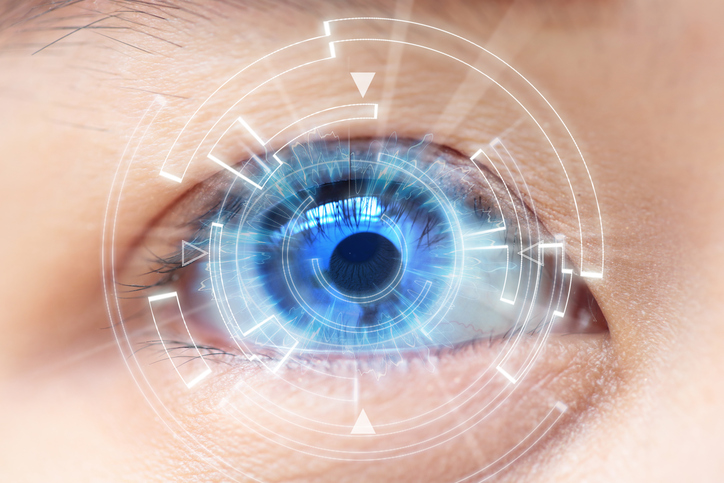Glasses fitted with cameras, an antenna-connected hand-held computer and a retinal implant that sends signals to the optic nerve make up Argus II – the bionic eye developed by Second Sight Medical Products[1]. The system allows patients to “see” artificially without restoring normal vision.
Although 250 patients have already benefited from this treatment in the United States, Germany and Italy, this was a first for Belgium. Dr. Fanny Nerinckx, ophthalmologist and retinal surgeon, and her team at Ghent University Hospital, treated a patient with Retinitis Pigmentosa (RP) – a hereditary eye disease. “This condition is characterised by the degeneration of photo-sensitive cells within the eye. Vision gradually decreases, culminating in blindness. Treatment or intervention at an advanced stage of the disease has been impossible in Belgium up until now,” explains Doctor Nerinck.
The mini-cameras on the glasses send images to a hand-held computer, which translates the images and sends them by antenna to the implant located on the retina. “The implant works like dead photosensitive cells and stimulates the intact nerve cells in the retina via 60 electrodes. The nerve cells transmit the signal via the optic nerve to the brain where the image eventually forms”.
This technique is not possible for individuals who are blind from birth because patients must learn to see again, i.e. “to interpret camera images and connect them to images that they have already seen”. This exercise is similar to learning a foreign language but with images warranting prolonged rehabilitation.
The operation was performed on 18 January. The patient was able to start wearing glasses from 1st February for two hours a day to begin with. Following intensive training, she could soon see flashes of light, then distinguish the lines and finally the geometric shapes in a contrasting colour. The next stage will be letter recognition followed by external elements (cars, pedestrian crossings, etc.) and finally recognition of people and their expressions.
For further reading:
United Kingdom: NHS to test “bionic eyes” in ten blind patients
[1] A start-up specialising in medical devices to counteract blindness.
RTBF (27/03/2018) ; 7sur7.be (27/03/2018)

